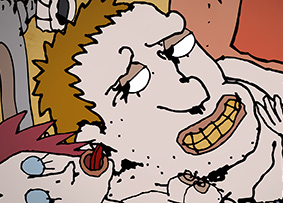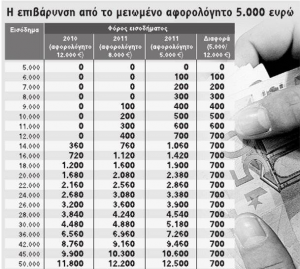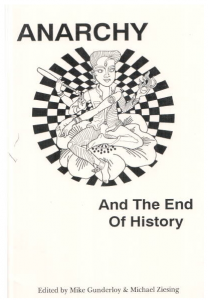Some of the films I will remember from Nordisk Panorama 2011, a Nordic-centred film festival that took place in Aarhus.
From The Animation Workshop in Viborg. I’d love being an animator myself…
I regret this does not exist online in its entirety, I’m sure everyone would love it as much as I did. I still sing “Eg har klina med ein skallamann!” whenever I remember it, not caring about the risk of people misunderstanding me!
Eläimiä eläimille, a deliciously disgusting Finnish short. No trace of it exists online. I hope one day it does so it is available for all to see.

And the one that struck me the most, The Green Wave, on the forged elections of Iran in 2009 and the uprising that followed (click on the link just for the website design excellence, if regrettably you are not interested in the film itself).
THE GREEN WAVE teaser (ENGLISH) from PORT AU PRINCE on Vimeo.
Green is the color of hope. Green is the color of Islam. And green was the symbol of recognition among the supporters of presidential candidate Mir-Hossein Mousavi, who became the symbolic figure of the Green Revolution in Iran last year. The presidential elections on June 12th, 2009 were supposed to bring about a change, but contrary to all expectations the ultra-conservative populist Mahmoud Ahmadinejad was confirmed in office. As clear as was the result, as loud and justified were the accusations of vote-rigging. The on-going Where is my vote? protest demonstrations were again and again worn down and broken up with brutal attacks by government militia. Images taken from private persons with their cell phones or cameras bear witness to this excessive violence: people were beaten, stabbed, shot dead, arrested, kidnapped, some of them disappearing without trace. What remains is the countless number of dead or injured people and victims of torture, and another deep wound in the hearts of the Iranians.
THE GREEN WAVE is a touching documentary-collage illustrating the dramatic events and telling about the feelings of the people behind this revolution. Facebook reports, Twitter messages and videos posted in the internet were included in the film composition, and hundreds of real blog entries served as reference for the experiences and thoughts of two young students, whose story is running through the film as the main thread. The film describes their initial hope and curiosity, their desperate fear, and the courage to yet continue to fight. These fictional ‘storylines’ have been animated as a motion comic – sort of a moving comic – framing the deeply affecting pictures of the revolution and the interviews with prominent human rights campaigners and exiled Iranians. Ali Samadi Ahadi’s documentary is a very contemporary chronicle of the Green Revolution and a memorial for all of those who believed in more freedom and lost their lives for that.
After watching The Green Wave in Øst for Paradis, the local cinephile theatre, there was a live Skype discussion with members of Amnesty International (one of them was in Iran in 2009) and Ramy Raoof, an activist from Egypt that leaked info out through Twitter during the “Arab Spring” (and still does). He tried to make clear the point that Facebook and Twitter, often used as the taglines of the Arab Spring by Western media, were not pivotal in organising the revolution; even after Mubarak had cut off the Internet and SMS, people of course used other means along side digital means. Ramy stressed that, even if Twitter and Facebook had not existed, the revolution would still have taken place…
…and added that, in Egypt today, the “temporary military government” after Mubarak has taken too many liberties and is not looking to be all that temporary at all…
This film shook me as few have. Imagine living in a country where you could be tortured or killed just because you were out in the streets demanding your vote to count, where the government would stop at nothing to muff you or your blog. Where merely me posting this could be deemed a crime punishable by… well, any means necessary. Maybe it’s far too easy to imagine other countries having such horrible regimes. Anyone who has read or watched Persepolis will be familiar with Iran’s difficult recent past and to see that things have certainly not improved is at least troubling. It also made me think about our own situation in Greece and how far things could go before spiraling into a similar scenario… When Alex Grigoropoulos was shot in December 2008, Greece was in flames for a couple of days. What would happen if (young) people got shot every day? Would people still go out to protest? Or would our generation freeze in terror, remembering that real protest against governments caught with their pants down could very well mean very real death, or worse? I have to admit that I don’t know how I would act if faced with these options. Looking at all of history’s failed revolutions, I do not want to shed blood for a pre-determinedly lost cause. Hell, even if the cause was not lost, I don’t want to die! Would a successful revolution won with the blood of hopefuls be worth it? Is anything won with blood worth it?










